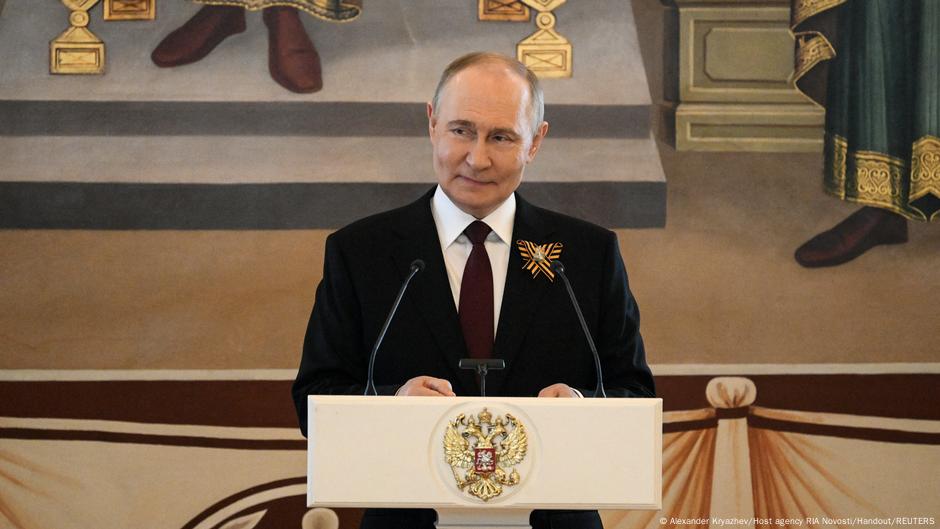The European Union (EU) on Wednesday agreed on the 17th sanctions package on Russia in response to its full-scale invasion of Ukraine.
The sanctions include about 200 vessels of Russia’s so-called “shadow fleet,” as well as restrictions on 30 companies involved in the trade of dual-use goods.
An additional 75 individuals and entities will also be listed for their links to Russia’s military industrial complex.
As part of the new measures, the EU will be able to sanction fleets that destroy subsea cables and other physical infrastructure, with 20 entities and individuals being added to this list.
On Wednesday, French Foreign Minister Jean-Noel Barrot said Europe and the US should go ramp up their sanctions on Russia.
“We will have to go further, because these massive sanctions have not yet deterred Vladimir Putin from continuing his war of aggression against Ukraine,” Barro told French broadcaster BFMTV, adding Kyiv’s allies must “impose devastating sanctions that could suffocate the Russian economy once and for all.”
https://p.dw.com/p/4uOzk
05/15/2025May 15, 2025Putin to skip Ukraine peace talks in Turkey
Russian President Vladimir Putin will not attend Thursday’s potential first direct peace talks between Moscow and Kyiv in three years.
On Sunday, Putin proposed direct negotiations with Ukraine in Istanbul on Thursday “without any preconditions.”
On Wednesday evening, the Kremlin announced that the delegation would include presidential adviser Vladimir Medinsky and Deputy Defense Minister Alexander Fomin.
Putin, Foreign Minister Sergey Lavrov, and Kremlin foreign policy aide Yuri Ushakov were not named in the delegation. All three had been rumored as top negotiators.
After the Kremlin announced its delegation, a US official said that President Donald Trump would not attend, despite having said days earlier that he was considering the trip.
Meanwhile, a Ukrainian official said that Ukrainian President Volodymyr Zelenskyy was on his way to Turkey. Earlier, Zelenskyy said he would only take part in the negotiations if Putin were present.
Although Putin had never confirmed his attendance, the absence of the Russian and US presidents has lowered expectations for a significant breakthrough in the Istanbul talks.
The US delegation, which includes Secretary of State Marco Rubio and senior envoys Steve Witkoff and Keith Kellogg, is also expected in Turkey.
On Thursday morning, Ukrainian Foreign Minister Andrii Sybiha announced that he had met with Rubio to discuss Zelenskyy’s vision for peace and to coordinate their positions during this critical week.
https://p.dw.com/p/4uOzW
Peace talks between Russian and Ukrainian delegations are set to begin in Istanbul, Turkey.
However, Russian President Vladimir Putin, who proposed the talks, will not be in attendance.
Meanwhile, his Ukrainian counterpart, Volodymyr Zelenskyy, is traveling to Istanbul.
Zelenskyy had previously stated that he would only participate in the negotiations if Putin were present.
https://p.dw.com/p/4uOzV
